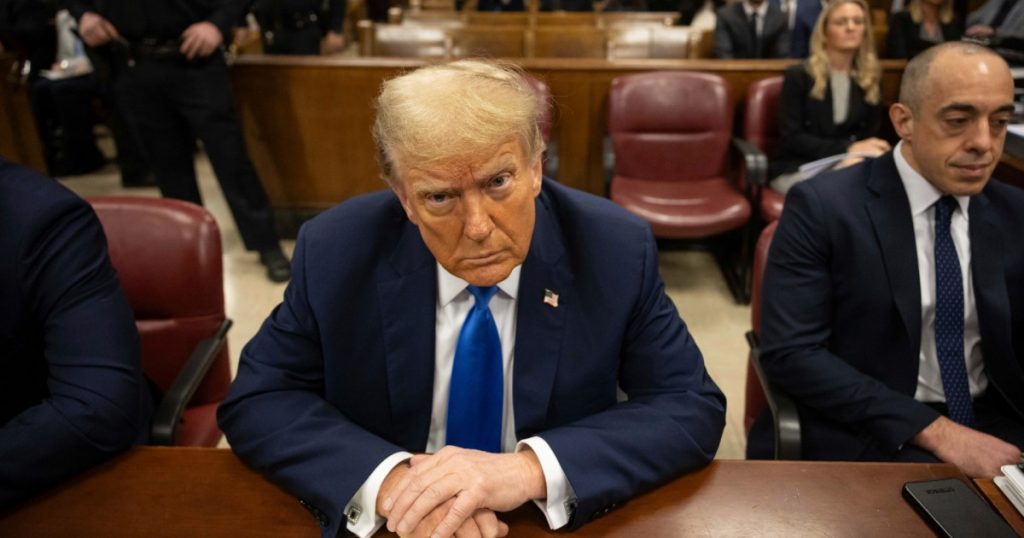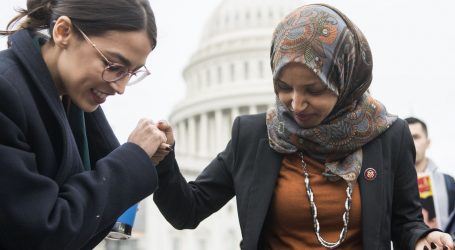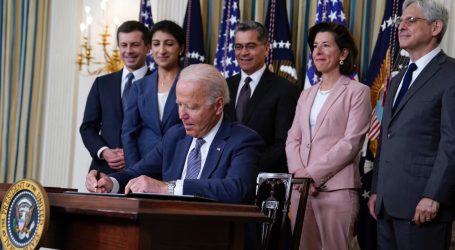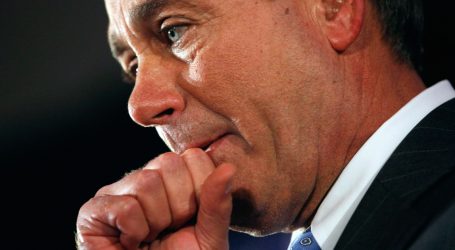The Biggest Misconception From Trump’s Historic Jury Selection
Former president Donald Trump awaits the start of proceedings at Manhattan criminal court.Yuki Iwamura/AP
Fight disinformation: Sign up for the free Mother Jones Daily newsletter and follow the news that matters.Last week, Justice Juan Merchan pulled off an impressive feat in the New York Supreme Court’s criminal division: He finished empaneling 18 jurors in the first-ever criminal trial of a former president.
This was not easy. Donald Trump’s first criminal trial—of the four he faces in the coming months—concerns 34 counts of falsifying business records, including a reported hush money payment he made to pornstar Stormy Daniels to cover up an alleged affair, in an attempt to influence the 2016 presidential election. Trump has pleaded not guilty.
In putting together a jury, Justice Merchan needed to find, somehow, a group of New Yorkers who felt they could not only be impartial about Trump, but also deal with the spotlight—which is to say, potential abuse from the defendant or his followers. Justice Merchan has imposed a gag order on Trump talking about certain people involved in the case to this end. But the former president has repeatedly seemed to violate this by criticizing Merchan’s family and several witnesses. Tomorrow, there will be a contempt of court hearing.
It was exactly this type of behavior from Trump, and its potential blowback for jurors, that led Justice Merchan to also order an anonymous jury. Not that this has all played out smoothly. When two of the initial jurors were excused over concerns about the potential public disclosure of their identities, the press’s potential role in that exposure became a talking point.
With all this mayhem, as we enter the first days of the next phase of the trial, there are key moments from the jury selection that should be remembered that might have been missed.
Most importantly, there has been one big misconception—that this selection process had culled from the jury anyone who had an opinion of Trump. That wasn’t the case. Striking a juror for simply knowing of or having an opinion of Trump was not an option.
Instead, jury selection highlighted Trump’s ubiquity in America. This is in part a reflection of the venue—the city of New York—but it’s also about Trump’s celebrity. As many prospective panelists entered the courtroom, they stretched their necks to get a look at the famous defendant, and one woman even giggled and put her hand over her mouth after realizing which trial she was summoned for.
In a departure from usual practice, Justice Merchan asked each new panel of prospective jurors to raise their hands if potential jurors felt they couldn’t be fair or impartial; he excused those who did without further questioning. This approach dispatched over half the jury field each time. The survivors completed a rigorous questionnaire and an interview, called voir dire, further nixing potentially biased Manhattanite jurors.
At one point in the process, Assistant District Attorney Joshua Steinglass said, “Everyone and their mother has an opinion about this case.” In the vetting process, we heard many of them.
Over the past week, more than 100 New Yorkers have had an inadvertent opportunity—a legal requirement, in fact—to tell Trump to his face exactly how they feel about him, without fear of response or retribution from the former president. A great many of them, prospective and now permanent jurors alike, expressed explicit distaste.
Liking or disliking Trump is not a basis for striking a juror who says he or she can be fair and follow the evidence and the instructions of the court. And both prosecution and defense have only so many “peremptory” strikes—that is, strikes of jurors who may be qualified but seem unattractive from the party’s perspective. So eventually, that means admitting a lot of people with opinions. And, unsurprisingly in Manhattan, those opinions seem to tilt heavily in a dislike-of-Trump direction.
One prospective juror, an amateur boxer who told defense attorney Susan Necheles that back in 2016, she felt that Trump’s “devout” followers were emboldened by his rhetoric to make “homophobic and racist comments” and discriminate against her “as a woman.” Several other prospective jurors clarified social media posts and memes on their pages excoriating Trump. One such post said he “actually is the devil.”
“I’ve got opinions, yeah,” said another prospective juror when asked about her opinion of Trump, “I’m born and raised in Brooklyn, New York.” She spent her whole life hearing about Trump, and even once saw him and Marla Maples, Trump’s second wife and mother of Tiffany Trump, shopping for baby things. Some of her family lives in Trump buildings. Before Trump’s face became a fixture on TV screens across America, he made himself a staple of city life. (“You just don’t get more New York than that,” the TV show “Sex in the City” had explained when Trump appeared during a cameo.)
Those potential jurors were excused, but the jurors who made it into the final 18 should give the defense little comfort. Juror 5, for example, said that while she’s “not a political person” herself, as a person of color she has friends who have strong opinions on Trump. Juror 11 will likely present an even bigger problem. She said she doesn’t like Trump’s “persona” or “how he presents himself in public,” calling him “very selfish and self-serving,” an attribute she “[doesn’t] really appreciate… in a public servant.” She added: “It’s not my cup of tea.” When Necheles tried to clarify whether she was saying that she doesn’t like Trump, Juror 11 simply responded: “Yes.”
Some commentators have suggested that Trump might find a guardian angel in Juror 2, the only one to have admitted to following Trump on Truth Social and to getting his news from the platform. But the media consumption graphic only tells part of the story. “I read basically everything,” Juror 2 said. “I follow Truth Social posts from Trump on Twitter. I do follow Michael Cohen, Mueller She Wrote, and some more.” He said that Trump has done some good for the country, but added “it goes both ways.” (That doesn’t sound exactly like a MAGA diehard.)
Rolling Stone reported that Trump is so incensed over the past week that he is reaching levels of anger that are “maxed out, even for him,” citing allegations of his courtroom napping and unflattering courtroom artist sketches.
Having sat through the entire jury selection process, I suspect he has other reasons to be worried—18 to be exact.





